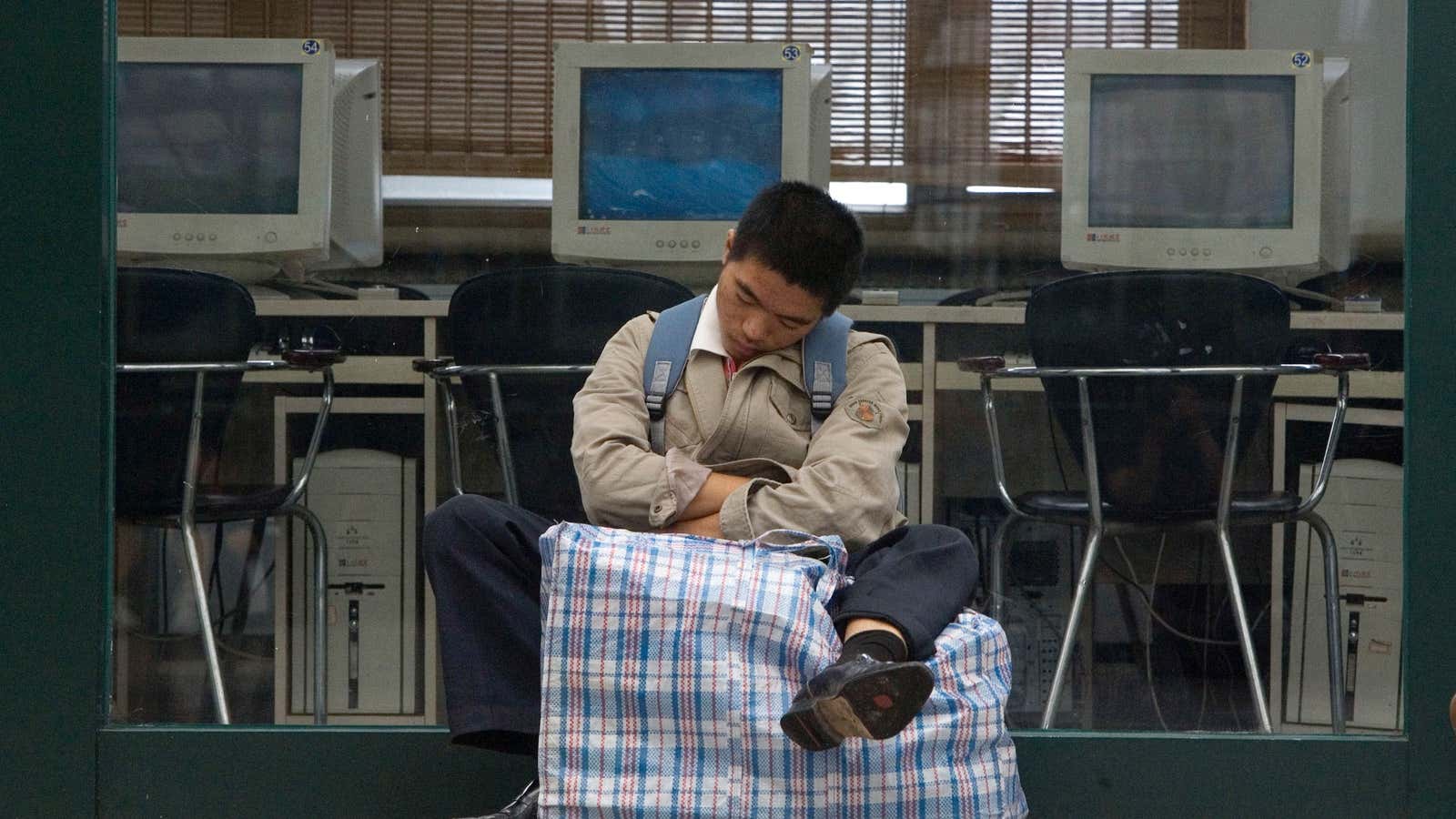On freedom of expression, China is going backwards. The New Yorker blogged today that China is exerting a “pattern of pressure” on American media organisations that “the US government cannot ignore.” In recent months, and in response to “a level of forensic detail that we have rarely, if ever, seen in foreign correspondence,” China has blocked access to Bloomberg and the New York Times and refused the Washington Post’s correspondent a visa.
This is part of a more general clampdown on both domestic and foreign reporting by Beijing. In the self-governed Chinese territory of Hong Kong, journalists are complaining of heightened harassment by Chinese police when they try covering stories on the mainland. And while Hong Kong media are not directly controlled by Beijing’s censors, self-censorship is rising as media owners fear losing valuable patronage from mainland Chinese politicians and connections with state-owned companies. Hong Kong’s leading English-language newspaper, the South China Morning Post, was accused of muzzling itself last year. Last June Paul Mooney, a journalist who has won several awards, complained the paper had canceled his contract in a “political decision.”
In addition, Al Jazeera correspondent Melissa Chan was expelled from China last May after filing a series of reports that riled the Beijing authorities. There were also reports last year of Polish, German and Japanese reporters being assaulted or detained by Chinese authorities.
In 2012, journalists suspected this intimidation had to do with the impending leadership change. Social controls that included heightened web censorship and even a ban on balloons increased strongly during the power handover in November. But policing of the Chinese web has not slackened since the political reshuffle.
And while the international media loves to report on itself, it is worth also sparing a thought for China’s domestic bloggers, especially those who expose official corruption or human rights abuses and rely on anonymity for safety. The Beijing city government has proposed new rules making it illegal for bloggers to write under assumed names. That is worrying because where the capital city goes, other Chinese cities tend to follow.
While Washington needs to press Beijing on guaranteeing freedom for America’s journalists, it should also stick up for the rights of Chinese reporters and bloggers. It’s an open secret that most foreign news bureaux in China get much of their content from Chinese language micro-blogs on services such as Sina Weibo, as parodied on the satirical website China Daily Show. Businesses the world over will have an even harder time navigating the tricky Chinese markets if they have no idea what is going on in the country because the Chinese internet, that rich seam of information for international media, is blacked out.
